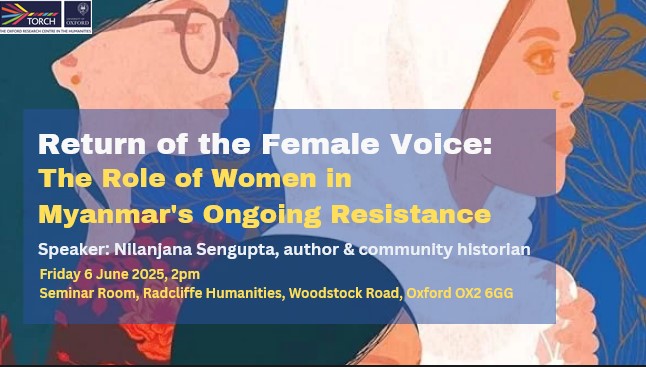Smith: How Integrating Life Skills in Curriculum Prepares Students for Real-world Challenges

PHOTOGRAPHER:ALAN BENNETT
Rod Smith is the Group Managing Director of International Education at Cambridge University Press and Assessment. He explained to Funmi Ogundare the importance of embedding life skills directly into the education curriculum to help young people continue to develop resilience, adaptability and initiative, as well as how schools can enrich learning by partnering with local entrepreneurs to connect learning to the real world and build valuable links between them and their communities
Why do you think skill-building and entrepreneurship are increasingly important in Nigeria’s education system?
Today, the world seems to be changing more rapidly than we’ve seen before, whether due to technological advances, climate change, or global financial volatility, which can create uncertainty about the future. So it’s perhaps more important than ever to prepare young people to be adaptable and ready for the world. Entrepreneurship has long since been a part of higher education in Nigeria, and it’s great to see the NERDC approving tools for learning entrepreneurship in primary and secondary schools. The aim is to equip students with the right skills and knowledge to compete on the international stage, and this fully aligns with Cambridge’s approach to education. Through our Cambridge Pathway, we want to ensure that our students are ready for the world. We do this by helping students develop not only strong subject knowledge but also a broad set of skills in areas such as communication, creativity, critical thinking, collaboration, and problem-solving.
These are key to an entrepreneurial mindset, helping students turn ideas into action, navigate challenges, and build sustainable ventures. Another strength of a Cambridge education is our Global Perspectives curriculum. From primary school onwards, students explore local and global issues, work together to solve problems, and reflect on their experiences. These early opportunities help them develop their initiative, creativity, and leadership. And no good education system today should overlook climate change. Preparing young people with the ability to mitigate and adapt to the effects of climate change is a key entrepreneurial tool for the future with huge societal benefit locally and globally. This is why, at Cambridge, we are integrating climate change education across all our subjects.
What are the key benefits of integrating vocational training into the school curriculum?
A vocational element in the curriculum supports a more holistic approach to education. At Cambridge, we believe students should have opportunities to develop both academic and practical strengths. That’s why our curriculum is broad, balanced, and flexible, designed to be adapted to individual learner needs and school contexts. We offer a range of vocationally oriented subjects, such as Agriculture, Design and Technology, Food and Nutrition, Travel and Tourism, and Media Studies, as well as professionally focused subjects like Business, IT and Accounting. Vocational training provides hands-on experiences that many students enjoy. But there are other ways to promote practical learning, too, such as project-based work, science experiments, and community engagement. These activities encourage students to apply what they learn to real-world scenarios and develop key life skills along the way, and we know that most successful entrepreneurs are also highly educated. Many of our students go on to study for a business degree at university. Take the example of Mmesoma Okonkwo, a remarkable Nigerian student from Chrisland High School, Victoria Garden City, who won our ‘Top in the World’, Outstanding Cambridge Learner award in 2022 for Cambridge IGCSE English as a second language. Our Cambridge education helped Mmesoma achieve A1 in all nine subjects in the WAEC, and she wants to pursue a degree in business studies with the dream of eventually running her own multinational business.
Do you see any challenge in sustaining government-initiated youth empowerment programmes?
One common challenge worldwide is that governments often have to shift focus due to budget constraints or a changing environment. That’s why it’s so important to embed life skills directly into the education curriculum. This helps ensure young people continue to develop resilience, adaptability, and initiative, even when individual programmes change.
How can schools ensure that practical skill development is given equal importance as academic subjects?
As I said, at Cambridge we don’t see academic subjects and skills development as separate. Students can gain practical skills through academic subjects like History or Geography, such as research, analysis, and communication. We also design our exams to reward both knowledge and skill. For instance, in history, students aren’t just tested on facts. They are also assessed on how they interpret historical evidence and build arguments. This shapes classroom teaching in a way that supports skill-building, too. Even sitting an exam helps students develop time management, planning, and prioritisation, all crucial for success in life and work. So rather than isolating practical skills, we believe they should be embedded throughout the curriculum.
How can the Nigerian curriculum be revised to support entrepreneurship education better?
It’s great to see the focus that Nigeria’s government and the minister of education had on ensuring that its young people are equipped for the future through the integration of life skills into the education curriculum at the earliest possible opportunity. I would say that in addition to adapting the curriculum, it’s about making sure curriculum, teaching methods, exams, and teacher training all work together. This is part of the success of Cambridge that what we test, how we test and how we train teachers are all closely aligned so that our education is more effective. For example, we have a sharp focus on supporting our teachers through dedicated resources aligned with the curriculum and through continuing professional development programmes. You have some great teachers in Nigeria. Mr Akeem Badru, from St. Michael RCM Primary School in Abeokuta, won our global Dedicated Teacher Award in 2023. This is a competition that celebrates the efforts of teachers around the world. It was his work combining STEM with craft and model-making to promote inquisitiveness, creativity and critical thinking that led to him being voted the best teacher from 11,000 nominations from 99 countries. More broadly speaking, Cambridge supports education reform in many countries, and we have found that an interdisciplinary approach to knowledge and skills works well to encourage entrepreneurial thinking.
How do you think government and private sectors can collaborate to improve the effectiveness of vocational training programmes?
Collaboration between government and the private sector is essential. Governments are well-placed to create policies and ensure access, while private partners bring real-world relevance, aligning training with industry needs. Private organisations can also offer internships and support schools with resources or training. Our Cambridge programmes, especially Enterprise and Global Perspectives, help students build transferable skills like critical thinking and teamwork, which are valuable in both academic and vocational settings.
What is your view about early exposure to entrepreneurship for youth unemployment in Nigeria?
Introducing entrepreneurial thinking early can definitely help, as with the NERDS new entrepreneurship teaching tools. It gives learners a sense of purpose and can be a powerful motivator. Our own global perspectives programme is also available at the primary school level. Obviously, this should be balanced with building strong foundations, like literacy, numeracy and emotional resilience, so students are ready to face the challenges that come with innovation and enterprise.
How can educational policies be shaped to support the integration of vocational training better?
Clarity of purpose is key. When all stakeholders, educators, policymakers, employers and communities understand the goals, vocational training can be more effectively integrated and better supported in schools.
How can schools partner with local industries or entrepreneurs to enrich students’ learning experiences?
Schools can enrich learning by partnering with local entrepreneurs, inviting them in for talks, involving them in student projects, or organising enterprise challenges. In our IGCSE Enterprise course, for example, students develop their own business ideas, gather feedback, and often work with local business owners as mentors. These kinds of activities help connect learning to the real world and build valuable links between schools and their communities.











